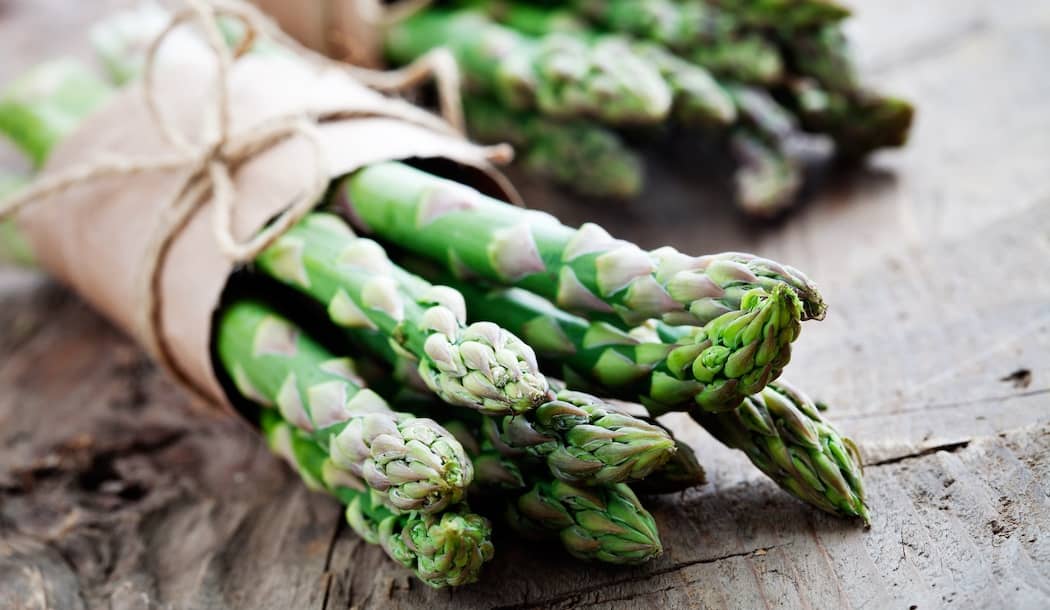
Asparagus is an often forgotten vegetable, yet it has a storied history.
Among its fascinating characteristics is the fact that this perennial plant can remain productive for up to 35 years. In ancient times, both Greeks and Romans not only ate fresh asparagus, but also dried it for later use, in some cases as medicine.1 In fact, as early as 200 B.C. these ancient cultures used asparagus to treat everything from bee stings to toothaches to heart trouble.2
Today, modern science has revealed numerous healing properties of the asparagus plant, but they’ve also made an alarming discovery: Asparagus appears to both help stop cancer and help grow it.3
The natural question is, should you eat asparagus? Let’s examine the facts…
The conflict over asparagus’s affect on cancer stems from certain elements within the plant that, according to some studies, may help specific cancer cells survive and grow. On the other hand, there are studies that document the plant’s many protective benefits against several cancers, including cancers of the breast, stomach, lung, and larynx.4
On the surface, asparagus has all the “good things” you want in your food: lots of vitamins and minerals, including folate, fiber, iron, potassium, and zinc, plus vitamins A, C, E, and K. Asparagus also contains antioxidants, glutathione, and asparagine (which was named after asparagus because that’s where the compound was first identified).5
It’s the last one –asparagine – that complicates the picture.
How asparagine affects cancer
Asparagine is the non-essential amino acid found in asparagus that, in the body, helps control cell function in your brain and nerve tissue.6 It’s important to note that the human body also produces asparagine naturally.
A 2018 study showed that breast cancer tumors with a high likelihood of spreading had higher levels of asparagine. However, the conditions of this study weren’t ideal. These were lab-grown mouse mammary tumors and the mice being studied had no immune systems.
Now, when researchers implanted the tumors into the mice and then blocked the mice’s natural production of asparagine, combined with a diet low in asparagine, this lowered the tumor’s ability to spread.7
Similarly, those same researchers looked at data from human breast cancer patients and concluded that if the breast cancer cells could make asparagine, then the tumor was more likely to spread. The researchers also observed lower survival rates among those women with cells better able to produce asparagine.8
Cancer-fighting antioxidants
On the other hand, asparagus is one of the best dietary sources of saponin, which is a phytochemical well-documented in lowering everything from cholesterol to cancer risk. Saponins also protect the immune system in ways that help your body stop cancer from growing.9
Then there’s glutathione. Glutathione measures in high levels in asparagus, and also in the human body. That’s because your own cells can produce this antioxidant. Its main purpose is to detoxify the body.10
Glutathione doesn’t get absorbed very well into the bloodstream and so asparagus isn’t considered a major reliable food source for glutathione. Still, studies show that getting glutathione from raw fruits and vegetables helps lower the risk of oral cancer.11
In addition, if your levels of glutathione diminish, you could experience an increase in oxidative stress, which potentially leads to cancer. 12
The verdict
So is asparagus a danger to your health? No, probably not. Is it going to cure your cancer? No, probably not. The extreme opinions on either side of this stalky green vegetable are the result of misinterpreting and over-interpreting laboratory study findings, not to mention the tendency for these to be distorted and exaggerated across the Internet.
While different studies on asparagus may say, “this hurts” and “this helps” when it comes to cancer, in the grand scheme of things precious few of them were experiments done on living humans with functioning immune systems. And so, the results don’t give us the last word on much of anything.
I would say that if you have or have had breast cancer, it might be a good idea not to eat asparagus every week—just to be safe. Other than that, asparagus is loaded with nutrition that’s beneficial to lowering cancer risk.13 Just don’t read too much beyond that into the information we have at this point about this vegetable.
Best regards,

Lee Euler,
Publisher
References:
- https://aggie-horticulture.tamu.edu/archives/parsons/publications/vegetabletravelers/
asparagus.html - https://aggie-horticulture.tamu.edu/archives/parsons/publications/vegetabletravelers/
asparagus.html - https://www.verywellhealth.com/does-asparagus-help-cure-or-cause-cancer-5087448
- https://www.aicr.org/cancer-prevention/food-facts/asparagus/
- https://www.aicr.org/cancer-prevention/food-facts/asparagus/
- https://www.verywellhealth.com/does-asparagus-help-cure-or-cause-cancer-5087448
- https://www.nature.com/articles/nature25465
- https://www.nature.com/articles/nature25465
- https://www.sciencedirect.com/science/article/abs/pii/S0308814617307380?via%3Dihub
- https://www.hindawi.com/journals/omcl/2013/972913/
- https://www.verywellhealth.com/does-asparagus-help-cure-or-cause-cancer-5087448
- https://www.verywellhealth.com/does-asparagus-help-cure-or-cause-cancer-5087448
- https://www.aicr.org/cancer-prevention/food-facts/asparagus/